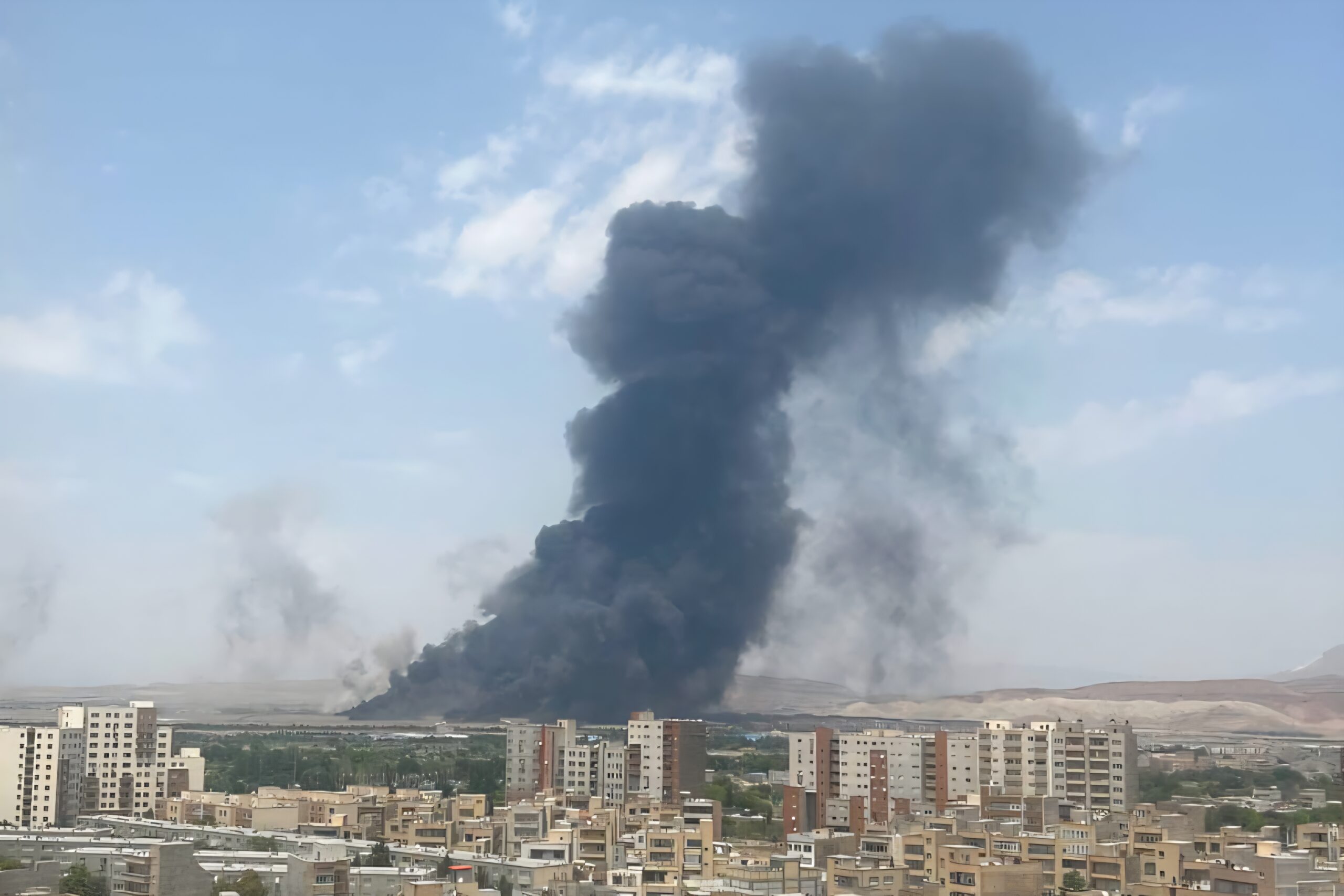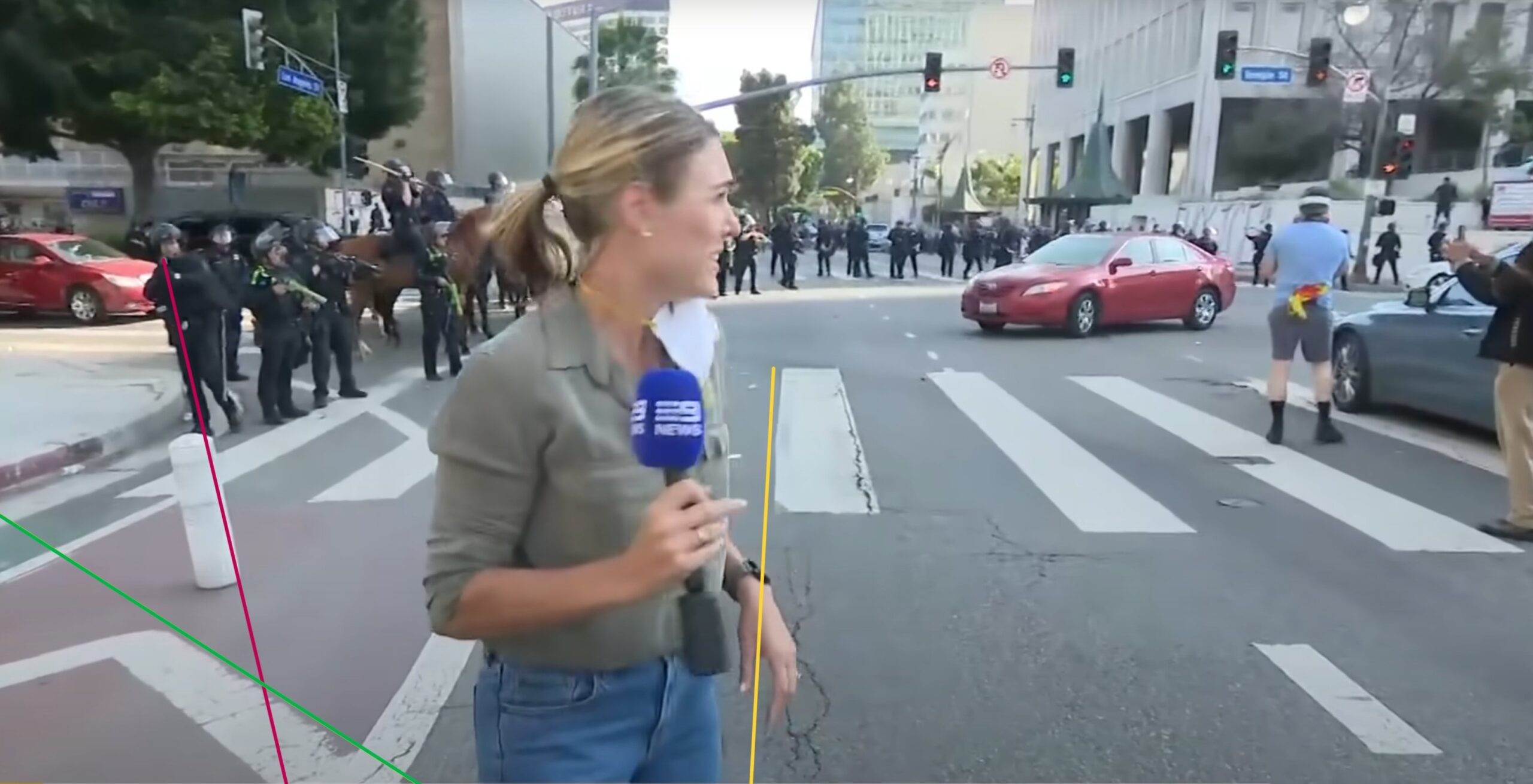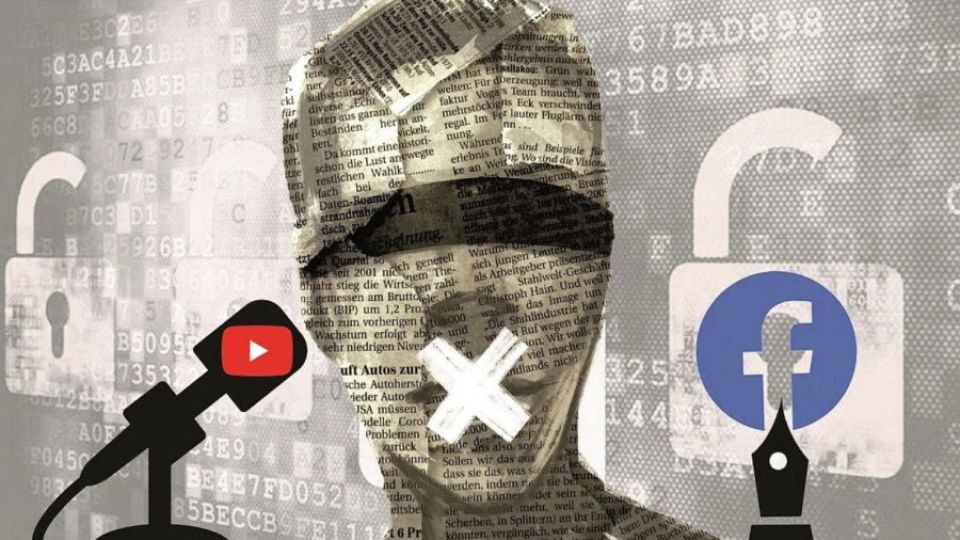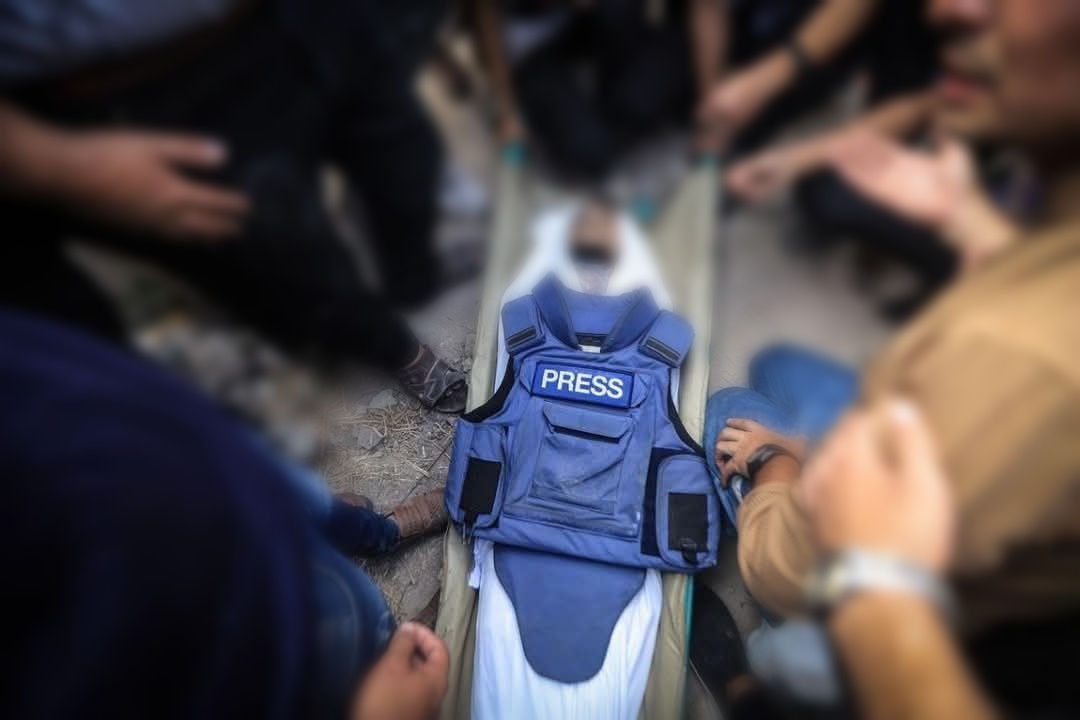Tehran, Iran – Israel has struck the headquarters of Iran’s state broadcaster, IRIB, in what appears to be a direct attack on the country’s primary media institution. The strike occurred during a live broadcast, momentarily filling the screen with smoke and debris before anchor Sahar Emami was seen fleeing the studio amid chaos.
Attack on Tehran media headquarters echoes Israel’s pattern of targeting journalists and news facilities across the region.
“This was an aggression against the homeland and the truth,” Emami said before being forced off-air. The Israeli military later confirmed the strike, claiming IRIB was being used for “military operations under civilian cover,” though it provided no supporting evidence.
Iran’s Foreign Ministry condemned the attack as a “wicked act” and a war crime, accusing Israel of a systematic campaign against journalists. Ministry spokesperson Esmaeil Baghaei stated, “Israel is the number one killer of journalists and media people,” calling on the United Nations Security Council to intervene to halt “further atrocities.”
The Committee to Protect Journalists (CPJ) echoed that condemnation, saying it was “appalled” by the bombing. In a post on X, CPJ noted that Israel’s impunity for killing Palestinian journalists has now expanded into cross-border attacks, warning, “This bloodshed must end now.”
A Pattern of Media Suppression
The strike on IRIB is not an isolated case. Israel has repeatedly faced criticism for targeting media infrastructure. In 2021, it destroyed Gaza’s al-Jalaa building, which housed Al Jazeera and the Associated Press. In 2022, Israeli forces shot and killed veteran Al Jazeera journalist Shireen Abu Akleh in the occupied West Bank, despite her wearing clearly marked press gear.

Photo : Iranian state TV anchor Sahar Emami appears live on air just moments before an Israeli airstrike struck the IRIB headquarters in Tehran.
Just last October, Israel bombed the al-Manar TV studios in Beirut during a broader military campaign in Lebanon. With Monday’s bombing of IRIB, Israel is accused of extending its campaign against the press beyond active conflict zones and into sovereign capitals.
Inside Iran, the strike is seen as highly symbolic. IRIB, located in a fortified compound in Tehran’s District Three, is closely aligned with the government, and its director is appointed by Supreme Leader Ali Khamenei. Its destruction sent a powerful message to both the Iranian leadership and the public.
Peyman Jebelli, IRIB’s chief, said the organization was targeted for exposing the “depth of the enemy’s media strategy,” calling the incident part of a broader “hybrid war” waged by Israel.
A Broadcast Under Fire
Journalists inside the building at the time of the strike described scenes of panic and resilience. Iranian reporter Younes Shadlou said many refused to evacuate despite prior warnings, choosing to remain to “show the true face of the Zionist regime to the world.”
Al Jazeera correspondent Dorsa Jabbari said the strike would be “a great shock for the Iranian people,” given IRIB’s prominence and symbolic weight. Though the live feed was disrupted, anchor Emami returned to air shortly after the blast, a move expected to bolster her public profile.
The number of casualties remains unconfirmed, but experts fear significant loss of life. “This is a massive building,” said Dr. Foad Izadi, an international relations professor at the University of Tehran. “There are hundreds of employees across four floors. I expect a lot of casualties.”
Escalating Tensions
In response to the strike, Iran issued evacuation warnings for Israel’s N12 and N14 news channels, signaling possible retaliatory action.
Israel’s repeated targeting of media outlets has raised alarms globally, with human rights groups warning that these attacks constitute violations of international law and norms around press freedom and civilian protection.
As regional tensions continue to escalate, watchdogs and international institutions face increasing pressure to confront what many see as an alarming trend of media suppression through military force.






Leave a Reply